Benefits of Action Would Be Plentiful and ImmediateDelta Area Professionals Share Insight
These days, “running things”—in any aspect of a business or one’s role in it—presents many challenges. Overseeing operations also brings out lessons one has learned in their careers and reflections upon their leadership and personality styles.
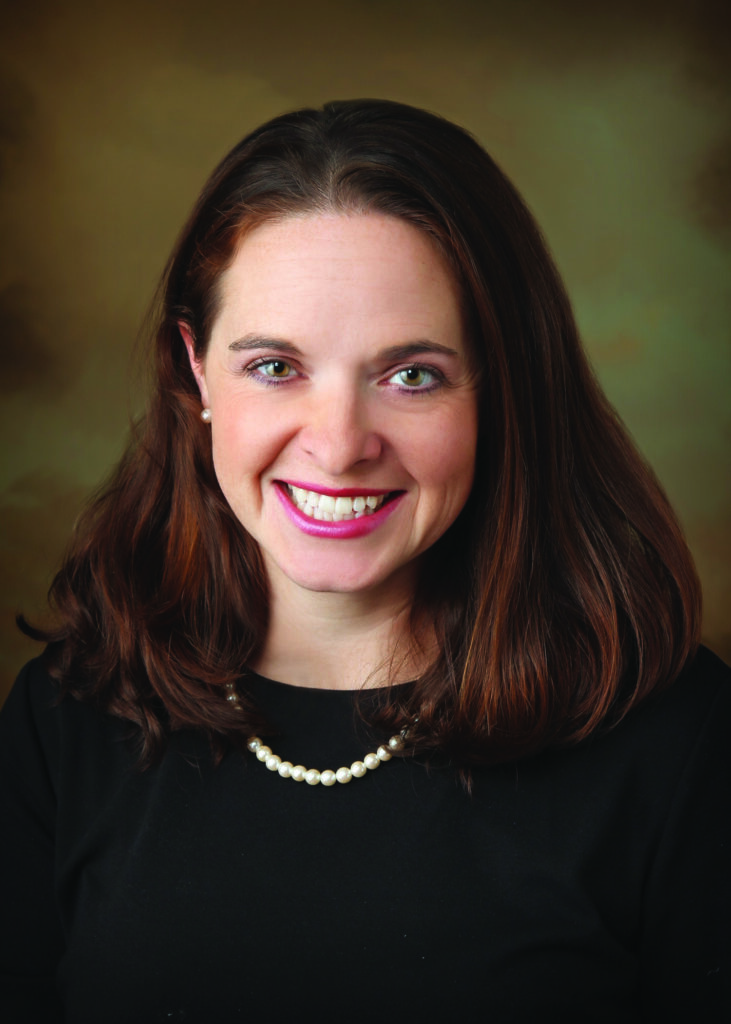
As one example, for nearly twenty-two years, Beth Williams has been a vital part of The Alluvian Hotel in Greenwood, Mississippi. She started just months after the hotel opened its doors in 2003, taking on the role of Sales and Events Manager.
With her background in event planning, Williams was naturally drawn to the fast-paced environment of hospitality. Over the years, she was promoted to General Manager, where she now leads the hotel’s day-to-day operations and also provides oversight to the Alluvian Spa, the Viking Cooking School, and Giardina’s restaurant.
“I was initially drawn to The Alluvian to oversee the hotel events because I had experience in event planning. I love the fast pace, ever changing environment of both event planning and the hospitality industry,” says Williams. “I wanted to make a positive impact on Greenwood by leading the Alluvian team. Our people here are dedicated to creating unique and lasting memories for our guests, and I wanted to be a part of that, helping guide it in the right direction.”
Though hospitality is a rewarding field, it comes with its challenges. Williams has faced many unpredictable moments, from managing a sudden rush of guests to handling last-minute changes for an event. The key to managing these situations, according to Williams, is adaptability and staying calm under pressure.
“One of the most challenging things about working in hospitality is managing the unexpected,” says Williams. “It may be a sudden surge of guests, a special event that requires quick adjustments, or a guest’s special request or complaint. But staying adaptable and calm is crucial. Surrounding yourself with a strong, dependable team is also key to handling these challenges.”
Years of experience in hospitality have shaped the understanding of what it truly means to lead, says Williams The day-to-day demands can be unpredictable. The importance of juggling multiple tasks at once is critical.
“A key lesson that changed the way I lead was realizing the importance of active listening,” says Williams. “In hospitality, you’re often multitasking and moving quickly. But when I take a moment to actively listen to my team members, it allows me to make better, more informed decisions that benefit both our guests and our team.”
Stepping into a leadership role comes with more than just responsibility, it demands a sense of awareness. Williams believes that being a leader isn’t just about delegating tasks—it’s about setting the tone through actions.
“My advice to someone becoming a leader is to lead by example and always stay approachable,” says Williams. “Never ask your team to do something you wouldn’t be willing to do yourself. It’s about building trust and being a reliable presence for your team.”
The Alluvian Hotel, where Williams has spent over two decades shaping the guest experience, stands as a testament to the charm and hospitality of Greenwood, the hotel blends the rich history of the region with modern luxury.
Williams’ leadership has been a crucial part of The Alluvian’s success, but her passion for hospitality goes beyond her role at the hotel. She is driven by the desire to help create an authentic Delta experience for every guest who visits, drawing on the region’s cultural heritage, from its literature to its rich culinary traditions.
Williams exemplifies what it means to lead with dedication and passion. Through her vision and commitment, she continues to inspire both her team and the guests of The Alluvian, ensuring that each stay is as memorable as the last.
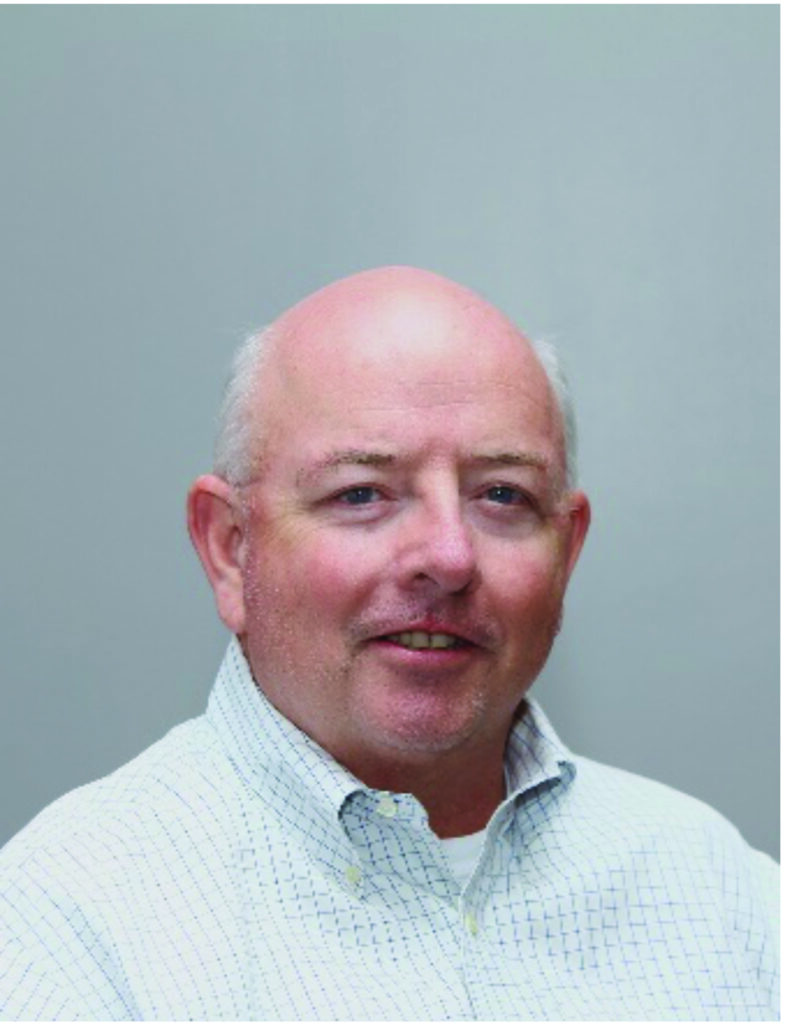
Baxter Healthcare in Cleveland employs over 500 people and produces medical products such as IV solutions, reconstitution devices, and plastic pour bottles used in hospitals for drug delivery and wound irrigation. The facility offers various manufacturing and maintenance roles.
The Plant Manager, Rich Titus, who has over 40 years of distribution experience, has been with Baxter for over five years and oversees the plant operations.
“As a plant manager for Baxter Healthcare, I have the privilege of leading the site in Cleveland,” says Titus. “My days are filled with a mix of coaching, meetings, and strategic initiatives. I love the variety and challenge of this role, and I’m always looking for ways to improve and grow.”
To keep the plant process ongoing and remain level-headed to conquer the days, it takes a balance of structure and flexibility, the ability to adapt when challenges arise, and a mindset grounded in patience and persistence. Each day brings new demands, and staying composed ensures steady progress even under pressure, he says.
Titus explains that daily process: “I oversee the entire site operation, including coaching site leadership, addressing daily concerns and removing obstacles, and participating in local and global meetings to discuss Baxter’s strategic initiatives and site priorities. It’s a big responsibility, but I’m up for the challenge!”
Titus continues, “To lead, you have to first be led by good leadership and be able to grasp effective ways to be successful. It means watching closely, learning from both wins and mistakes, and applying those lessons with intention. Leadership isn’t given—it’s earned through experience, consistency, and a willingness to keep growing.”
Titus noted the impact his grandfather had on him.
“My grandfather was a huge influence on me, and our conversations about the importance of leadership really sparked my interest in becoming a plant manager. I was initially working as an engineer in automation and controls, but a stretch assignment to manage the site maintenance team during a critical period helped me develop my leadership skills. It was a game-changer for me,” he says.
The challenge that could come with holding a title such as plant manager comes with obstacles and always having to find ways to remain optimistic. It requires clear decision-making, and the ability to motivate others even when situations become uncertain, notes Titus.
“Evaluating and maintaining a high-performing team is definitely the most challenging part of my job. But I navigate this by relying on a strong leadership team, maintaining full transparency, and encouraging open communication. This approach helps my team understand the problems and work together to find solutions,” says Titus.
The lessons that come with leadership come with trial and error and learning experiences to pivot. Titus observes, “One of the most important lessons I’ve learned is the importance of doing more with less. When the company was struggling, I had to shed non-essential activities and focus on the necessary ones to remain competitive. This experience taught me the value of prioritization and adaptability in leadership.”
The advice that Titus would give anyone stepping into leadership is to continue to evolve.
“I would advise them to learn their role and build their team, give trust first, and balance the future. By following these principles, they can set themselves up for success and effectively lead their team to achieve their goals,” he says.
Titus’ takeaways from leadership are, “Leadership is not just about giving orders, but about building trust, transparency, and open communication.Also, prioritization and adaptability are crucial in leadership, especially during challenging times. Learning from experiences and being willing to take on new challenges can help you grow as a leader. By embracing these key takeaways, I’ve been able to become a more effective leader and drive success in my role as a plant manager,” he says.
Baxter Healthcare has been located in Cleveland since 1950 and was the company’s second manufactured facility. It will continue to grow its roots in the Delta. Over the decades, it has remained an anchor in the community, steadily expanding its operations and impact across the region.
Its long-standing presence reflects a deep commitment to progress, stability, and regional pride. The facility not only represents a place of work but also a source of identity for many who call the Delta home. Its story here is still unfolding.
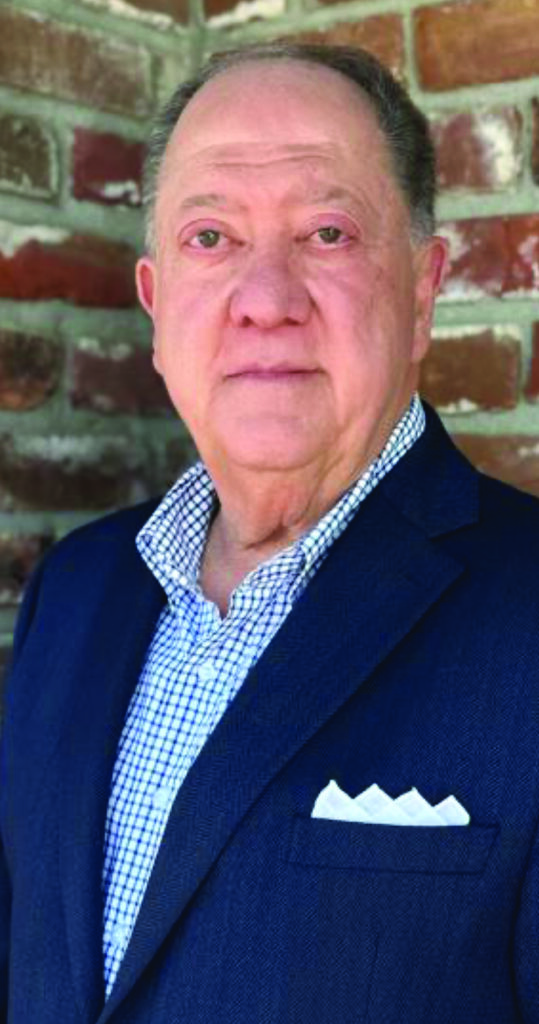
Cleveland business owner, Danny Abraham, once a soon-to-be medical student, had a different path laid out for him. But, actual life had other plans. The family business, dating as far back to 1918, became his calling. Abraham’s has since grown to be known for its fine men’s clothing and upscale outerwear for women.
“The day after graduating from Delta State University, five stores burned downtown. With Dr. Henry Outlaw’s and Dr. Wayne Wally’s help, I was already committed to attending medical school. However, my father convinced me, that day, to build and open the shop we are in today. I had no money and no credit. Fortunately, a local bank believed in me, and after months of consideration, I finally got a loan to build and open Abraham’s,” says Abraham.
Abraham’s Clothing Store has been a staple of downtown Clevelandsince 1979. A family-owned business Abraham, as current owner, has dedicated his life to running the store, carrying on the family tradition. Over its decades of operation, it has earned a reputation for providing high-quality merchandise, exceptional customer service, and for being deeply embedded in the local community.
While it takes hard work and dedication to run a store like Abraham’s, Abrahm has never shied away from responsibility. To ensure the highest level of customer service for the city of Cleveland and surrounding areas, he wears multiple hats—playing every part necessary to keep the family business going and growing.
“Nothing is easy, and no one is entitled—hard work and perseverance are the only ways to succeed in life. In any business, you must be willing to change. Even though consistency is paramount, you must be willing to adapt to change,” says Abraham.
The leadership that Abraham continues to build through his store and community leadership roles reflects a meaningful legacy—a commitment to keeping a family tradition alive through generations. The store’s continued success stands as a testament to the character and perseverance it takes to remain open for more than four decades. Abraham’s has become a cornerstone of Cleveland’s downtown district, a symbol of consistency, strength, and resilience in the face of change and challenge.
Abraham’s approach to leadership is grounded in values passed down through generations: dignity, integrity, and fairness. Every decision he makes is led by a sense of purpose—not just to grow the business, but to uplift the people it serves.
“Lead by example, trust your instinct, and seek God’s guidance,” says Abraham. Those words are more than advice—they are a way of life for him, he notes. Whether mentoring younger staff, supporting fellow local businesses, or caring for his customers, Abraham says he believes everyone deserves to be treated with respect and kindness. He says to lead with a steady hand, a servant’s heart, and a clear vision to protect what his family built while preparing it for a strong future.
“I’m not just selling clothes—I think I’m building trust and helping our community, one person at a time,” says Abraham.
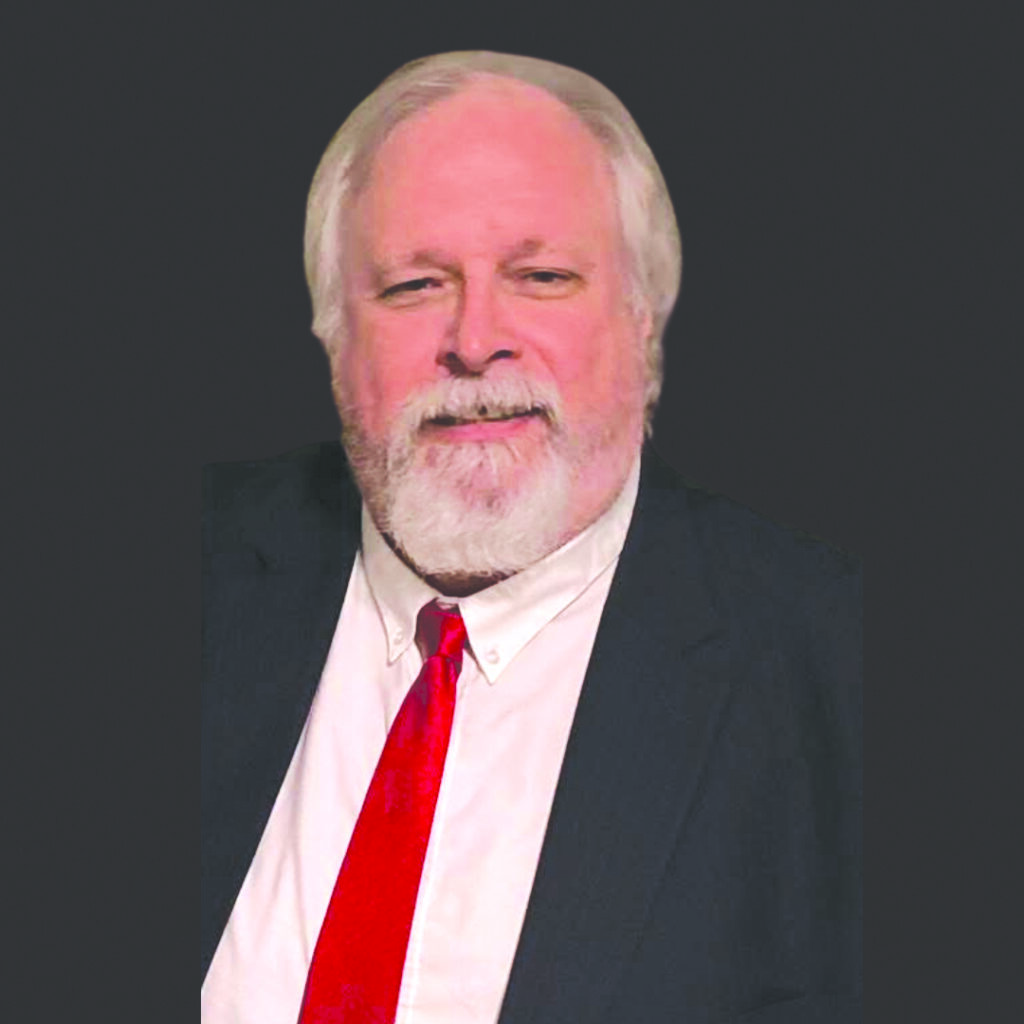
Kevin Cox, the President of RCI Marketing Solutions, began his professional journey in radio at RCI in 1991. “At the time, my business partner and I took over from George Shurden, who had been the managing partner since 1957. When he retired, the ownership group was looking for someone to step into his role. We pitched ourselves as a team—and they bought in,” says Cox.
“Nowadays, there’s no such thing as a typical day. With five radio stations, a digital billboard, and five Facebook accounts, there’s always something that needs attention,” says Cox,”Lately, I’m less hands-on and more focused on a supportive, forward-looking role.
“One of the most valuable takeaways from my time in the Goldman Sachs 10,000 Small Businesses initiative in Mississippi I recently was accepted into is this: I spend most of my time working on the business, not in the business. I’m able to do that because I have a great team—people who know what they’re doing and are dedicated to doing it well. At this point, I’m just along for the ride, supporting them and mapping out the road ahead,” adds Cox.
“I’d describe myself as an expressive, empathetic leader,” says Cox about his management style. “While we all carry elements of different leadership styles, I’ve found that I operate best by trusting and supporting my team. I believe people thrive when they’re given the freedom to do what they love without being micromanaged. For me, it’s the results that matter most—not necessarily the process each person takes to get there.”
Business success is all about adapting, maintains Cox. “Whether it’s changes in the market, the community, the environment, or the industry, our job is to navigate those shifts in a way that allows us to continue delivering a quality product—to both our audience and our clients.”
Did he ever get a lesson in business that stuck with him? Cox answers, “One lesson that’s stuck with me over the years is something I heard early on in my marketing and sales career: You sell more ads when you focus on selling your clients’ products and services. You sell fewer ads when you focus on selling ads. That mindset has guided me ever since. The client’s needs should always be at the center of any business relationship.”
As far as any advice he would provide to someone about to enter a leadership role, Cox offers the following: “Be genuine, honest, and direct—with clients, staff, employees, and peers. Own your strengths, acknowledge your weaknesses, and always work to improve both. That approach has served me well, and I believe it builds trust and lasting relationships,” he says.
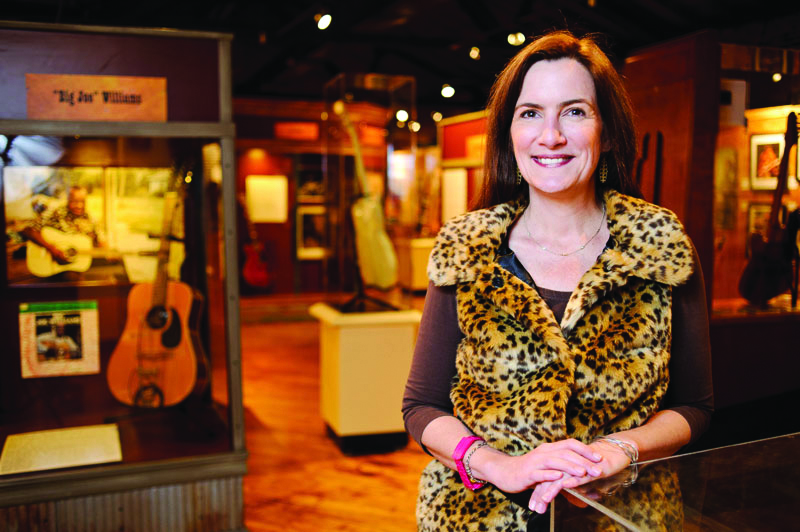
Clarksdale, MS, known as the birthplace of blues, is a historic place that adds value to the city—none more so than the Delta Blues Museum. The museum has continued the legacy of what the city is known for, putting on a show with events like the “Juke Joint Festival,” drawing visitors from around the world. This year marks the 22nd year for the festival. The woman who has been behind the scenes of the blues is Executive Director of the Delta Blues Museum (DBM), Shelley Ritter.
The Mississippi native oversees the operations of the museum, and alongside her everyday duties, Ritter also works to locate partners and keep the history alive for Clarksdale.
“No two days are the same here—but I am typically searching for funding or partnerships, writing a grant or a grant report, answering emails and phone calls, and planning events. I also keep an eye on the budget and occasionally prune the crepe myrtles,” says Ritter.
But what’s evident is that this isn’t just a job for her. It’s rooted in something deeper.
“Growing up in Mississippi, my parents made sure I was aware of the positive things in our state, especially the arts: Walter Anderson, Leontyne Price, Eudora Welty, Elvis, and BB King,” says Ritter. “I chose the museum field because of Patti Carr Black, former director of the Old Capitol Museum in Jackson. Patti and my mom were friends when they attended college and I was always drawn to the important work Patti was doing at the Old Capitol Museum that included celebrating Mississippi’s folk artists and their works, musical performances in the House Chamber, talks by Eudora Welty, and the creation of an exhibit on Mississippi’s music heritage called ‘All Shook Up. That exhibit was the first time I had seen an exhibit on all genres of Mississippi music celebrated together. It was riveting,” says Ritter.
“Patti introduced me to Bill Ferris, who at that time was at the Center for the Study of Southern Culture, and off to graduate school I went,” says Ritter. “While in Oxford at Ole Miss, I encountered even more Mississippi writers and artists and met many people who valued Mississippi’s arts and culture.
“My first job after graduate school was setting up the archive for Elvis Presley Enterprises. I went on to be the Field Services Curator for the State of Mississippi, working with museums and historical societies around the state and administering two rounds of grant funding. In 2003, I accepted the position here at DBM in Clarksdale,” says Ritter.
But even with decades of experience, leadership is never a smooth ride. Staying optimistic about the transitions and what a day can bring is key in a leadership role.
“The most challenging part of running something is balancing the bigger picture with the details. It is easy to let the daily grind get in front of where you are headed, but if you change your mindset—’I’m getting this done so that I can do this …’—it changes your perspective.
“It is also challenging to try to educate people on the importance of this institution—the world’s first museum devoted entirely to blues—and the importance of those individuals who helped shape and create it. Our exhibits use the artists’ words and stories to tell the history and heritage of the blues, and it is this history and heritage that has shaped music as we now know it, really all genre,” she says.
“When people are placing a priority on a musician because of their popularity, I try to remind people that it was Muddy Waters’ song, ‘Rolling Stone/Catfish Blues’ that named a magazine and a band.”
Ritter says, “I have a very strong foundation of core beliefs and attitudes about this music and these musicians and their contributions. It is an honor to be able to showcase their work at the museum. Staying focused on that helps keep me inspired. Leadership, much like the lives of many of the blues musicians, is inherently tied to overcoming obstacles and navigating uncertainties. You have to be willing to do the work to reap the results.”
Her advice to potential and future leaders? “Know yourself. Know your strengths and your weaknesses. Find people who can fill in the gaps of those weaknesses,” says Ritter.
Ritter’s own leadership, like the blues, is full of grit, rhythm, and soul. It’s about resilience, storytelling, and lifting up voices that deserve to be heard. And at the Delta Blues Museum, under her guidance, those voices continue to echo—loud, proud, and unforgettable.

